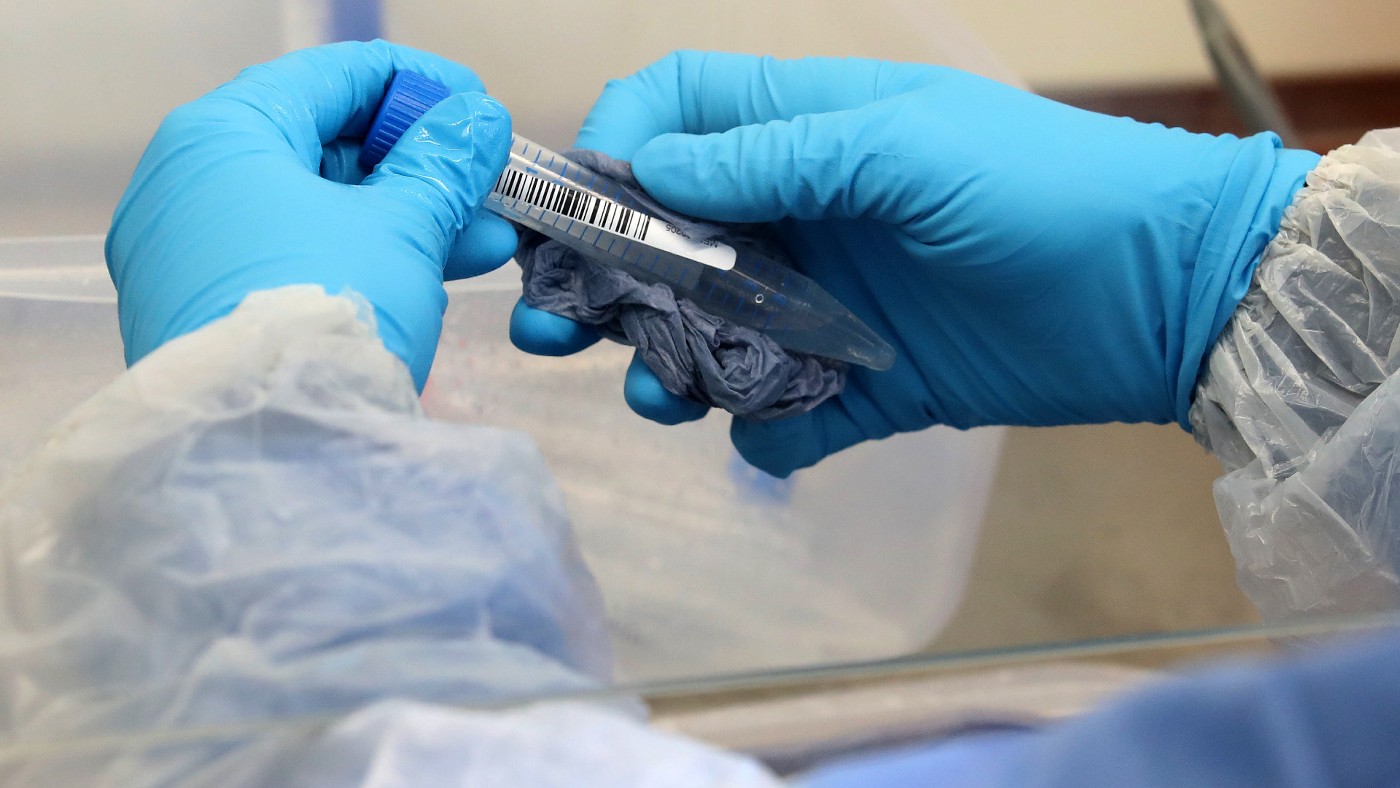The plan to scrap the UK’s ONS Covid survey
Experts suggest ‘world’s best surveillance system’ could protect against future pandemics

A free daily email with the biggest news stories of the day – and the best features from TheWeek.com
You are now subscribed
Your newsletter sign-up was successful
Plans to scrap the Office for National Statistics’ (ONS) “gold standard” weekly Covid-19 survey have been greeted with dismay by experts and commentators.
The survey, which measures both infection rates and antibodies across the country, is due to lapse this spring and will be either “scaled back” or “phased out altogether” if Rishi Sunak does not sign off on funding for another year, the i reported.
But with experts warning that another pandemic is possible in the coming decades, ditching the scheme is being described as a short-sighted move that could prove counterproductive.
The Week
Escape your echo chamber. Get the facts behind the news, plus analysis from multiple perspectives.

Sign up for The Week's Free Newsletters
From our morning news briefing to a weekly Good News Newsletter, get the best of The Week delivered directly to your inbox.
From our morning news briefing to a weekly Good News Newsletter, get the best of The Week delivered directly to your inbox.
‘Global standard setter’
The ONS weekly survey has been tracking the same households since June 2020 and is therefore not subject to fluctuations in numbers of people self-testing for Covid-19. It employs more than 2,000 people, who visit the same households regularly.
The survey, which has been praised by the World Health Organization, regularly tests around 100,000 people to provide an “unbiased estimate” of the prevalence of Covid in the UK, said The Times’ science editor Tom Whipple.
Unlike community testing, the survey is “not self-selecting, so it picks up people who would not get tested or who do not know they are infected”, he added.
With mass testing also expected to be scaled back, the daily case count published online will become less and less representative of the true number of infections. This, experts say, would make the ONS data increasingly valuable.
A free daily email with the biggest news stories of the day – and the best features from TheWeek.com
Wales’s economy minister, Vaughan Gething, told Times Radio that the ONS infection survey is “even more important now because of the changes made to testing policy in all parts of the UK”.
And former Downing Street adviser Dominic Cummings tweeted that “abandoning” the “global standard setter” would be “so stupid”, claiming that the plan to scrap the scheme is a “Tory policy to save money”.
Professor Danny Altmann, an expert in immunology at Imperial College London, said it would be “incredibly counterproductive to axe” the survey, while Rupert Beale, clinical science group leader at the Francis Crick Institute, said it is a “flat-out terrible decision”.
Epidemiologist Adam Kucharski told the i it was “crucial to have good information on what’s happening”, and Christina Pagel of University College London said “we need ONS weekly population surveillance on Covid to combine with hospital and death data”.
In The Observer, columnist Will Hutton described the planned scrapping of the “highly regarded survey” as part of a “reckless libertarian dash” for the “Covid exit”.
With life increasingly returning to normal, the ONS study “allows the UK to pick up the emergence of high-risk variants”, he warned, describing the surveillance tracker as “public goods for which we readily pay”.
Future-proofing
The widely praised system could have future applications, said The Times’ Whipple, and marks the “greatest effort to track a disease in the history of humanity”.
With future funding, it could be that the ONS runs a “smaller – in both frequency and numbers – version of the survey” with a view to tracking other infections such as influenza.
Ian Diamond, the UK’s national statistician, told the paper that maintaining the infrastructure of the national survey could serve as an insurance policy, suggesting that if another novel virus emerged “it would have the ability to expand very, very quickly”.
-
 6 exquisite homes with vast acreage
6 exquisite homes with vast acreageFeature Featuring an off-the-grid contemporary home in New Mexico and lakefront farmhouse in Massachusetts
-
 Film reviews: ‘Wuthering Heights,’ ‘Good Luck, Have Fun, Don’t Die,’ and ‘Sirat’
Film reviews: ‘Wuthering Heights,’ ‘Good Luck, Have Fun, Don’t Die,’ and ‘Sirat’Feature An inconvenient love torments a would-be couple, a gonzo time traveler seeks to save humanity from AI, and a father’s desperate search goes deeply sideways
-
 Political cartoons for February 16
Political cartoons for February 16Cartoons Monday’s political cartoons include President's Day, a valentine from the Epstein files, and more
-
 A Nipah virus outbreak in India has brought back Covid-era surveillance
A Nipah virus outbreak in India has brought back Covid-era surveillanceUnder the radar The disease can spread through animals and humans
-
 Covid-19 mRNA vaccines could help fight cancer
Covid-19 mRNA vaccines could help fight cancerUnder the radar They boost the immune system
-
 The new Stratus Covid strain – and why it’s on the rise
The new Stratus Covid strain – and why it’s on the riseThe Explainer ‘No evidence’ new variant is more dangerous or that vaccines won’t work against it, say UK health experts
-
 RFK Jr. vaccine panel advises restricting MMRV shot
RFK Jr. vaccine panel advises restricting MMRV shotSpeed Read The committee voted to restrict access to a childhood vaccine against chickenpox
-
 The UK’s opioid crisis: why the stats don’t add up
The UK’s opioid crisis: why the stats don’t add upThe Explainer A new report has revealed that the UK’s total of opioid-related deaths could be much greater than official figures show
-
 RFK Jr. scraps Covid shots for pregnant women, kids
RFK Jr. scraps Covid shots for pregnant women, kidsSpeed Read The Health Secretary announced a policy change without informing CDC officials
-
 New FDA chiefs limit Covid-19 shots to elderly, sick
New FDA chiefs limit Covid-19 shots to elderly, sickspeed read The FDA set stricter approval standards for booster shots
-
 RFK Jr.: A new plan for sabotaging vaccines
RFK Jr.: A new plan for sabotaging vaccinesFeature The Health Secretary announced changes to vaccine testing and asks Americans to 'do your own research'